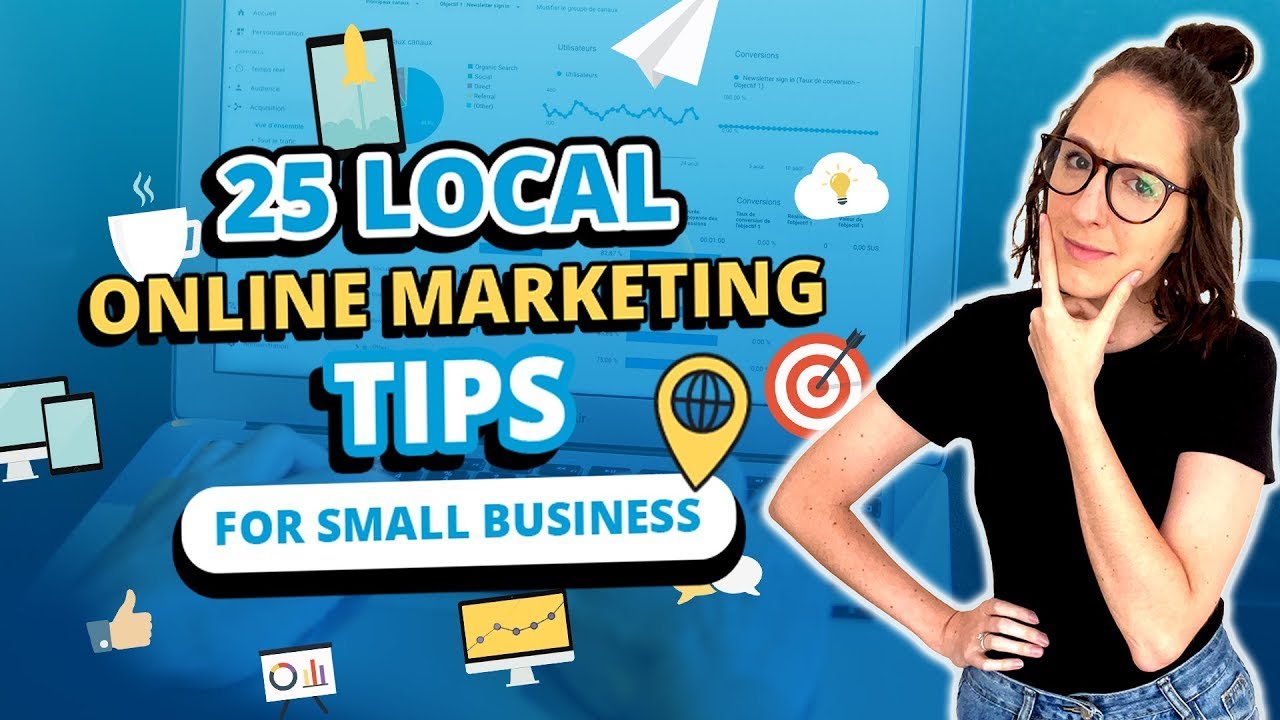- local online advertising
- Importance Of Local Online Advertising
- Impact Of Mobile Online Searches On Local Businesses
- Targeting Consumers Through Local Marketing
- The Role Of Local Marketing For Brick-And-Mortar Businesses
- Key Strategies For Successful Local Marketing
- The Importance Of Mobile-Friendly Websites For Local Advertising
- Localizing The Website For Effective Marketing
- Promoting Local Engagements And Leveraging Media
In today’s digital age, connecting with potential customers has never been more crucial for businesses with brick-and-mortar locations. Did you know that a staggering 97% of people now turn to the internet to learn more about local companies?
This means that having a strong online presence is vital for attracting new customers and growing your business. But how can you effectively navigate the world of localonline advertising?
In this article, we will explore the tried-and-tested strategies that can help you reach your target audience, from mobile-friendly websites to localSEO and social media engagement. Get ready to unlock the power of local marketing and watch your business thrive in just one day!
| Item | Details |
|---|---|
| Topic | Unlock the Power of Local Online Advertising: Boosting Business Exposure and Reach |
| Category | Ads |
| Key takeaway | In today's digital age, connecting with potential customers has never been more crucial for businesses with brick-and-mortar locations. |
| Last updated | December 28, 2025 |
advertising">local online advertising
Local online advertising is a critical strategy for businesses with brick-and-mortar locations. It allows companies to target consumers within a certain radius of their physical business, reaching potential customers who are more likely to convert into sales.
Local marketing involves utilizing buyer personas and location data to tailor marketing efforts to the local audience. Strategies for local marketing include having a mobile-friendly website, localizing the website with location-based terms and pages, claiming local listings on third-party websites like Google My Business, investing in local SEO to rank for locally-relevant keywords, utilizing social media, engaging in the local community, leveraging local media, and combining e-commerce activities with local marketing efforts.
Fresh tips added for marketers this month.
By employing these strategies, businesses can reach new audiences, improve their search rankings, and establish a strong presence in the local community.Key Points:
- Local online advertising targets consumers within a certain radius of a physical business.
- Buyer personas and location data are used to tailor marketing efforts to the local audience.
- Strategies for local marketing include mobile-friendly websites, localized content, and claiming listings on third-party sites.
- Local SEO is important to rank for locally-relevant keywords.
- Social media and community engagement are valuable tools for local marketing.
- Combining e-commerce activities with local marketing efforts helps businesses establish a strong local presence.
Sources
https://blog.hubspot.com/marketing/local-marketing
https://www.wikihow.com/Advertise-Locally-for-Free-on-the-Internet
https://about.ads.microsoft.com/en-us/solutions/local-advertising
https://www.fiverr.com/resources/guides/digital-marketing/how-to-promote-business-locally
Check this out:
💡 Pro Tips:
1. Use customer reviews and testimonials as part of your local online advertising strategy. Display positive reviews and testimonials prominently on your website and social media platforms to build trust with potential customers.
2. Collaborate with other local businesses to create joint promotional campaigns. Partnering with complementary businesses in your area can help expand your reach and attract new customers who may not have been aware of your business before.
3. Utilize local influencers or bloggers to promote your business. Reach out to local influencers or bloggers who have a strong following in your area and collaborate with them to showcase your products or services. Their endorsement can greatly impact local online advertising efforts.
4. Offer exclusive discounts or promotions for local customers. Create special offers that are exclusive to residents in your target area to incentivize them to choose your business over competitors. This can help drive more foot traffic and online engagement.
5. Engage in local online communities and groups. Join local Facebook groups, online forums, and community platforms where your target audience is active. Participate in discussions, answer questions, and provide valuable insights to establish your expertise and promote your business organically within the community.
Importance Of Local Online Advertising
Local online advertising has become an essential tool for businesses to connect with their target audience. In today’s digital age, 97% of people turn to the internet to learn more about local companies, surpassing traditional mediums such as print advertisements or word-of-mouth referrals.
This statistic highlights the critical role that online advertising plays in building brand exposure and reach.
One of the key benefits of local online advertising is its ability to target consumers within a specific radius of a physical business location. By narrowing down the audience to those in close proximity, businesses can focus their marketing efforts on individuals who are more likely to convert into customers.
This targeted approach allows for a more efficient and cost-effective use of resources.
Successful local marketing involves the use of various strategies, including defining buyer personas and utilizing location data. By understanding the needs, preferences, and behaviors of their target audience, businesses can tailor their marketing messages and content to resonate with local customers.
Additionally, leveraging location data enables businesses to personalize their advertisements based on the specific geographical location of the viewer, further increasing the chances of engagement and conversion.
Impact Of Mobile Online Searches On Local Businesses
The rise of smartphones has transformed the way consumers search for local businesses. Research shows that 88% of mobile online searches for local businesses result in either a call or business visit within one day.
This statistic emphasizes the urgency and immediacy of mobile searches, as consumers are often ready to take action immediately after conducting their search.
Mobile-friendly websites play a crucial role in local online advertising. With the majority of searches happening on mobile devices, it is essential for businesses to optimize their websites to provide a seamless user experience on smaller screens.
A mobile-friendly website ensures that potential customers can easily navigate and find the information they need, increasing the likelihood of conversion.
Targeting Consumers Through Local Marketing
Local marketing allows businesses to connect with consumers who are geographically close to their physical location. By targeting these potential customers, businesses can maximize their advertising efforts by reaching individuals who are more likely to convert into sales or visits.
There are several strategies that businesses can employ to effectively reach their local audience. Firstly, it is crucial to localize the website by adding location-based terms and pages.
This not only helps with search engine optimization but also makes the website more relevant and relatable to local customers.
Secondly, claiming local listings on third-party websites, especially Google My Business, is essential for local online advertising. These listings provide valuable information to potential customers and make it easier for them to find and contact the business.
Investing in local SEO is another crucial aspect of local marketing. By optimizing the website and its content for locally-relevant terms and keywords, businesses can improve their search rankings and increase their visibility to local customers.
Local SEO strategies include optimizing the website’s meta tags, titles, and descriptions with location-specific information.
The Role Of Local Marketing For Brick-And-Mortar Businesses
Local marketing has particular significance for businesses with a brick-and-mortar presence. These businesses rely on foot traffic and local consumers to generate sales and revenue.
By implementing effective local marketing strategies, brick-and-mortar businesses can increase their visibility and establish a strong presence in the local community.
One of the key benefits of local marketing for brick-and-mortar businesses is the ability to reach new audiences. By targeting consumers within a specific radius, businesses can tap into untapped markets and attract customers who may not have been aware of their presence.
This expansion of the customer base can lead to increased sales and brand loyalty.
Additionally, local marketing enables brick-and-mortar businesses to improve their search rankings. By optimizing their online presence and utilizing local SEO strategies, businesses can increase their visibility in search engine results, making it easier for potential customers to find them when conducting local searches.
Establishing a presence in the local community is another crucial aspect of local marketing for brick-and-mortar businesses. By actively engaging in local events, supporting non-profit activities, and becoming a local sponsor, businesses can build relationships with the community and enhance their brand image.
Key Strategies For Successful Local Marketing
In order to unlock the full potential of local online advertising, businesses should employ a range of strategies. These strategies encompass various aspects of online marketing, offline marketing, and community engagement.
Here are some key strategies for successful local marketing:
These strategies work together to create a comprehensive and effective local marketing plan, helping businesses expand their reach, improve their search rankings, and establish a strong presence in the local community.
The Importance Of Mobile-Friendly Websites For Local Advertising
In the era of smartphones and mobile internet usage, having a mobile-friendly website is crucial for local online advertising. Mobile devices are now the primary means through which consumers access the internet, and businesses must adapt to this shift in consumer behavior.
A mobile-friendly website ensures that potential customers can easily navigate and interact with the website on smaller screens. It provides a seamless user experience, allowing visitors to find the information they need quickly and efficiently.
This positive user experience leads to higher engagement and conversion rates, ultimately boosting business exposure and reach.
Furthermore, search engines like Google prioritize mobile-friendly websites in their search results. Websites that are not optimized for mobile devices are likely to rank lower in search engine results, resulting in decreased visibility and potentially lost opportunities for business growth.
By having a mobile-friendly website, businesses increase their chances of appearing in top search results, driving more traffic and potential customers to their site.
Localizing The Website For Effective Marketing
Localization is a crucial aspect of effective local online advertising. By adding location-based terms and pages to the website, businesses can make their online presence more relevant and appealing to local customers.
Including location-based keywords throughout the website’s content, meta tags, titles, and descriptions enhances its visibility in local searches. For example, a bakery in New York City may include keywords like “best cupcakes in NYC” or “NYC bakery” to attract local customers searching for baked goods in the area.
In addition to keywords, creating location-specific pages on the website helps businesses showcase their ties to the local community. This can include information about local partnerships, community involvement, or special events and promotions happening in the area.
These localized pages not only provide valuable information to potential customers but also contribute to the overall credibility and trustworthiness of the business.
Promoting Local Engagements And Leveraging Media
Promoting local engagements and leveraging local media are crucial components of successful local online advertising. Engaging with the local community helps businesses establish a strong presence and build relationships with potential customers.
Businesses can promote local engagements by actively participating in local events, supporting non-profit activities, and becoming a sponsor. By aligning themselves with local causes, businesses showcase their commitment to the community and create a positive brand image.
Local media, such as radio advertising or local newspapers, provide an additional avenue for promoting business exposure and reach. By leveraging these channels, businesses can reach a wider audience and increase their visibility within the local community.
This can be particularly effective for attracting local customers who may not be active online or who rely on traditional media sources for information.
In conclusion, local online advertising plays a crucial role in boosting business exposure and reach. By targeting consumers within a specific radius and utilizing effective strategies such as mobile-friendly websites, local SEO, and community engagement, businesses can establish a strong presence and drive growth in their local markets.
By unlocking the power of local online advertising, businesses can tap into the potential of their local customer base and maximize their marketing efforts.
Advertising Platform for Marketers • Programmatic Advertising • Buy Traffic • Native Ad Network











